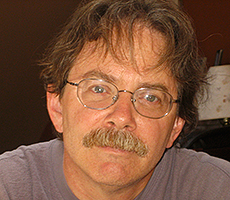York University’s Lassonde School of Engineering hosted the fifth annual Lassonde Undergraduate Summer Student Research Conference on Aug. 13, and despite the ongoing pandemic, the school was able to showcase the research of 57 undergraduate students taking part in summer research programs.

For the first time, the annual research conference was delivered in an entirely virtual format. The conference was an immersive and interactive experience that included a virtual fair of research projects where guests could connect with student researchers in real time. The research projects ranged from the construction of 3D maps and models for urban traffic, online engineering education, artificial intelligence, microfluidic devices, and deep learning in space. The full conference program can be found here.

Caroline Floyd (BSc ’01, Earth and Atmospheric Science) delivered a keynote presentation titled “Being ‘They’ in “They say it’s going to rain:” Thoughts from 20 Years in Weather” which provided an engaging overview of her career in weather as the lead forecaster for coverage at two Olympic games and producing hour-by-hour forecasts for every continent (excluding Antarctica – so far).
The virtual research conference also included remarks from:
- Jane Goodyer, Lassonde dean
- John Moores, associate dean, Research & Graduate Studies
- Amir Asif, vice-president research & innovation
- Brenden Schulz, executive director, Student Success
- Gerald Audette, associate dean, Faculty of Science
The conference closed with a presentation on graduation studies from Professor and Graduate Program Director Usman Khan and the highly anticipated awards ceremony. The awards were presented by Goodyer and Moores.
The oral presentation winners, announced at the event, include:
- Student’s’ Choice Oral Presentation Award: Melissa Spiegel
- Second Place Oral Presentation Award: Jack Wawrow
- First Place Oral Presentation Award: Aryan Nabidur Rashid
The video research presentation winners, announced at the event, include:
- Third Place Students’ Choice Award (Morning Session): Chester Wyke
- Second Place Students’ Choice Award (Morning Session): Daphne-Eleni Archonta
- First Place Students’ Choice Award (Morning Session): Sara Kashanchi
- Third Place Students’ Choice Award (Afternoon Session): Rashiq Shahad
- Second Place Students’ Choice Award (Afternoon Session): Karen Abogadil
- First Place Students’ Choice Award (Afternoon Session): Mohammad Sotoudehfar
- Third Place Video Award: Julia Ferri
- Second Place Video Award: Sara Hajari
- First Place Video Award: Koko Nanahji
- Best Booth Graphic Award: Daphne Archonta
More about undergraduate research at Lassonde
This year, Lassonde awarded 19 NSERC Undergraduate Student Research Awards (USRA) and 35 Lassonde Undergraduate Research Awards (LURA). Incoming students are from multiple programs at York University, but also Carleton University and Western University. Want to learn more about these programs? Check out the promo video here: http://www.lassondeundergraduateresearch.com/2020-summer-research-at-lassonde.
Students spent the summer working alongside professors and their teams to develop potential solutions, further knowledge and get hands-on experience in their respective fields. The professors have worked tirelessly to flip the program to a remote setting so as to provide the same value to our student participants, re-creating professional research environments online to give students the chance to hone their laboratory skills, solving problems associated with their project; and writing reports and disseminating their findings.
For more information on undergraduate research at Lassonde visit http://www.lassondeundergraduateresearch.com.



















